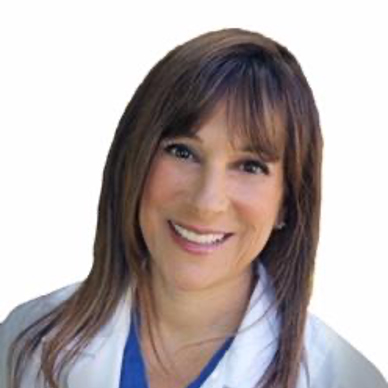Explore Related Nursing Specialties
Advanced Practice Registered Nurses (APRN Career Guide)

What Is an APRN?
Advanced practice registered nurses (APRNs) are nurses with advanced education, training, and certification that allow them to provide more complex care to patients. APRNs often act as primary care providers and can assess, diagnose, and treat patients. The designation of APRN is actually an umbrella—not a single degree or job title. There are four APRN jobs that play a unique role in the healthcare field:
Clinical nurse specialists (CNSs)
Nurse anesthetists (CRNAs)
Certified nurse midwives (CNMs)
Nurse practitioners (NPs)
APRNs have increased independence and responsibility beyond that of regular RNs. In fact, many states allow APRNs to prescribe medication, open their own offices, and see patients independently.
“APRNs work with patients in both inpatient and outpatient settings to provide a high level of care,” explains Nancy Brook, MSN, RN, CFNP, a nurse practitioner at Stanford Health Care in Palo Alto, California. “This may include the diagnosis, treatment, and management of patients across the lifespan.”
Your first step toward an advanced nursing career is an advanced degree. In addition to your RN license and education, you’ll need to earn at least a Master of Science in Nursing (MSN) if you’re interested in any of the four APRN careers.
You’ll also need certification from a national certifying board. Currently, an MSN is the minimum education requirement for all APRN roles, but this is shifting. There is an increasing focus on the Doctor of Nursing Practice (DNP) degree as a standard for APRNs. In fact, the DNP will be the entry-level standard for nurse anesthetists by 2025.
Intrigued? Now is a great time to get started on the path to an APRN career. APRN roles are growing in number and importance in the healthcare field.
“Currently the field is wide open for new graduates and growing, especially with a shortage of primary care doctors in the U.S.,” Brook said.
APRN Roles & Scopes
Each of the four APRN jobs has a different focus and role. While there is some overlap (for example, both NPs and CNSs can see patients and prescribe medicine), there are important differences as well.
Clinical Nurse Specialist
A CNS is an advanced nurse who specializes in a particular patient population. CNSs also act as leaders and hold high-level roles in healthcare settings. They mentor, manage, and advise other RNs as well as develop and implement new patient-care policies.
Required degree
You’ll need at least an MSN.
Prerequisites
The prerequisites will depend on your program. However, all programs will ask that you have an RN license in good standing. Some bridge programs will admit RNs who currently hold an ADN, but you’ll need at least a BSN before you begin others. Many MSN programs are competitive. They’re looking for nurses with solid GPAs, clinical experience, and strong recommendations.
Responsibilities
Where you’ll work
Licenses and certification
You’ll need certification from the American Nurses Credentialing Center (ANCC) or the American Association of Critical-Care Nurses (AACN). Your certification will be in your area of specialization; the exact requirements will depend on your state.
Certified Registered Nurse Anesthetist
A CRNA administers anesthesia to patients before procedures. CRNAs play a vital role in healthcare. In fact, in rural communities, they might be the only available provider of anesthesia.
Required degree
You’ll need at least an MSN.
By 2025 all new CRNAs will need to hold at least a DNP.
Prerequisites
You’ll need to be an RN in good standing before you begin any CRNA program. Most CRNA programs will also require at least a BSN. Requirements beyond that will depend on your program. CRNA programs are often competitive. You’ll likely need a very solid GPA, good recommendations, critical care clinical experience, and a solid GRE score.
Responsibilities
Where you’ll work
Licenses and certification
Certification is mandatory for all CRNAs. It’s available from the National Board of Certification and Recertification for Nurse Anesthetists (NBCRNA).
Certified Nurse Midwife
A CNM can provide obstetrics and gynecological (OB-GYN) care to patients. CNMs can treat patients from the early stages of pregnancy through labor and delivery. They can also provide any needed postpartum care.
Required degree
You’ll need at least an MSN to work as a CNM.
Prerequisites
The prerequisites will depend on your program. However, you’ll often need a solid GPA, high GRE scores, and experience working as a labor and delivery nurse. All programs will require that you hold an active RN license. There are bridge programs available that will allow you to start a CNM degree from an ADN. Other programs will require a BSN before you begin.
Responsibilities
Where you’ll work
Licenses and certification
CNMs are certified by the American Midwifery Certification Board (AMCB). You’ll need to be certified to practice.
Nurse Practitioner
A NP provides primary care to patients. Nurse practitioners often work in private practice to treat patients. NPs are certified to work in certain settings or with certain populations. For example, family NPs can see patients of all ages, while geriatric NPs focus on seniors.
Required degree
You’ll need at least an MSN.
However, just like CRNAs, the DNP is becoming the entry-level standard. It’s currently being recommended as the entry-level standard by 2025.
Prerequisites
You’ll need an ADN or BSN before you can apply to an MSN program. Bridge programs will allow you to start with an ADN while other programs will require a BSN. Other requirements depend on the program. However, you’ll likely need a solid GPA and GRE scores.
Responsibilities
Where you’ll work
Licenses and certification
The certification you need will depend on your practice focus and state. NPs are certified by the ANCC and the AACN, as well as the American Association of Nurse Practitioners (AANP), the National Certification Corporation (NCC), and the Pediatric Nursing Certification Board (PNCB).
APRN Job Outlook
The outlook for APRNs is bright. In fact, the U.S. Bureau of Labor Statistics (BLS) projects a staggering 40 percent growth in APRN roles as a whole through 2032. That’s an expected addition of well over 100,000 APRN jobs over the next several years.
Nurse Practitioners
Projected Growth through 2032
Nurse Anesthetists
Projected Growth through 2032
Nurse Midwives
Projected Growth through 2032
Clinical Nurse Specialists*
Projected Growth through 2032
*The BLS groups CNSs under the RN umbrella. Projection comes from RN data.
This growth is fueled by several factors:
These changes in healthcare are creating a high demand for APRNs that seems to be here to stay.
“Today, (APRNs) have proven their effectiveness in delivering high-quality, lower-cost health care services,” Brooks says. “Health care consumers, recognizing the value of a good service, look to APRNs for numerous health care needs.”
While it remains unclear how health care reform will change health care delivery, “it is abundantly clear that (APRNs) will be a vital component of future American health care services,” she says.
The BLS, in its Occupational Outlook Handbook, backs up this assessment:
Overall, job opportunities for advanced practice registered nurses are likely to be excellent. APRNs will be in high demand, particularly in medically underserved areas such as inner cities and rural areas.
Working as an APRN will also provide opportunities to grow professionally. As an APRN you can be a leader in the healthcare field. You can make a difference in not only the lives of your patients, but also in your community at large. That makes APRN careers an excellent fit for people who are looking for a high-impact career with a lot of job security.
“(APRNs) are fully accepted by health care consumers and other providers as a critical component of our modern-day healthcare system in the United States,” says Brook. “(They) have been providing care to patients across the lifespan for more than 50 years, making their presence essential. As Americans continue to age and healthcare reform occurs, it is expected that APRNs will become even more critical to our system.”


With professional insight from:
Nurse Practitioner 1V, Stanford Health Care
